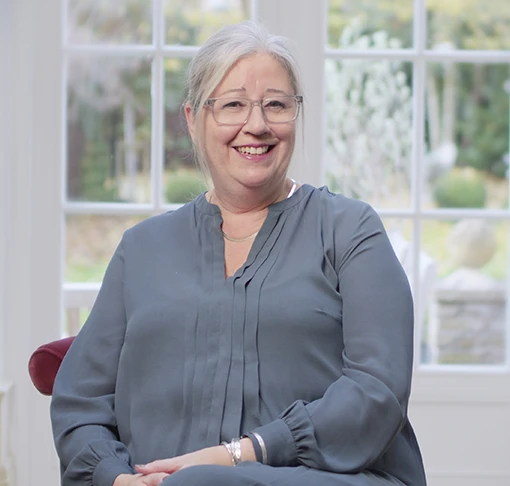- Life Coaching Diploma
The basis for all our training, our professionally accredited diploma - Corporate Coaching Programme
If you want to coach larger corporates and their teams - NLP Diploma Level 1
Our level 1 course designed to teach the fundamentals of NLP - NLP Practitioner Programme
Train to be an NLP pracitioner - Business Coaching Diploma
If you want to coach businesses and their leaders - Coaching within Education
Coaching for use in educational and childcare settings
- Free Introduction Webinars
Join us on one of our free webinars to find out more about our diplomas - DISC Personality Profiling
Explore our DISC workshops, training courses and resources - Coaching Conversations
Our monthly webinar series thats free to join - CPD & Workshops
We run regular CPD workshops covering a range of niche coaching areas - What is life coaching?
Find our more about life coaching, what it is, and how its used - Our Blogs & Articles
Insights, stories, articles and more - Coaching, counselling and mentoring
What is the difference between these three modalities - History of life coaching
The history of life coaching, and how it started - Life coaching accreditation
Is life coaching accredited, and why is it important
Policies & Ethics
The Coaching Academy Blog - 13 Mar 2024
Using The Johari Window Model in Life & Corporate Coaching
This week's blog has been written by Katy Mason, one of our expert trainers at The Coaching Academy and a Corporate Coach. Katy shares with us how we can use the Johari Window Model in life and corporate coaching as a framework for personal development. Read on to learn more about applying the Johari Window Model.
Windows are omnipresent in our lives—clean or dirty, big or small, they offer a unique view of the world. We look through them daily, witnessing the spectrum of life from joyous celebrations to poignant moments. Interestingly, even our laptops have windows, providing a digital portal to our virtual worlds.
But what if I told you that each of us has a personal window, a lens through which we see and experience life? This window is as unique as our fingerprints, reflecting our joys, challenges, vulnerabilities, and triumphs. Are you ready to take a closer look through your window and explore what excites, challenges, and inspires you?
Enter the Johari Window Model a model created by psychologists Joseph Luft and Harrington Ingham, combining their first names to create a tool for understanding human interaction. Much like a window with four distinct panes—open arena, blind spot, facade, and unknown—the Johari Window provides a framework for self-discovery and personal development that can be used in life and corporate coaching.
The Johari Window is a model used in the development of self-awareness and the importance of sharing information with others in the form of feedback to support their development in raising awareness of any blind spots . When our blind spots are opened to us, we grow and increase our own personal arena, when done well this builds trusted relationships and elevates confidence and increases vulnerability, which then allows us to revel more about ourselves and grow.
Unlocking the Benefits of the Johari Window Model:
1. Self-Reflection:
- Encourage individuals to reflect on their strengths, weaknesses, and areas for improvement.
- Explore their comfort level in sharing information about themselves with others.
2. Feedback:
- Facilitate feedback sessions to help individuals receive insights from others about their blind spots and hidden areas.
- Foster a culture of constructive feedback within the coaching relationship.
3. Goal Setting:
- Use the Johari Window to identify areas for personal and professional development.
- Set goals to expand the Open Area and reduce the Blind Spot and Hidden Area.
4. Communication Skills:
- Improve communication skills to express thoughts, feelings, and intentions effectively.
- Address any challenges in expressing oneself or understanding others.
5. Building Trust:
- Work on building trust within the coaching relationship to encourage openness and vulnerability.
- Help individuals feel comfortable sharing more about themselves.
Navigating the Johari Window Model: A Cautionary Note
While the Johari Window is a powerful personal development tool, it's essential to acknowledge its potential challenges. Inviting individuals to share personal information requires a level of comfort that not everyone may possess. Additionally, the model relies on openness and authenticity, which can be challenging in environments where egos are high or confidence is low.
Building the Coaching Foundation: Establishing Trust and Transparency
Coaching is an art that involves not just guiding clients but also unveiling the unexplored territories of their personalities. In this journey of self-discovery, the Johari Window emerges as a powerful tool, offering coaches a unique perspective to navigate the complexities of their clients' minds. However, the successful application of this model hinges on the establishment of a strong coaching contract. Before delving into the intricacies of the Johari Window Model, it is crucial to establish a robust contract with clients. This contract sets the stage for open communication, trust, and a shared commitment to the coaching process. Recognising that clients may harbour limiting beliefs in their façade pane, the coach becomes a guide, helping them break through barriers that hinder self-awareness and confidence.
Revealing the Blind Spot: Unveiling Personal Perceptions and Seeking 360-Degree Feedback
The blind spot in the Johari Window Model often conceals aspects of oneself that clients are not aware of. A skilled coach can act as a mirror, reflecting personal perceptions and encouraging clients to seek feedback from their connections. 360-degree feedback becomes a valuable tool in this phase, providing a holistic view that goes beyond individual perspectives. By exploring this feedback in subsequent coaching sessions, clients can gain insights into their blind spots, fostering growth and self-awareness.
Benefits of Utilising the Johari Window Model in Coaching:
1. Breaking Limiting Beliefs:
- Address limiting beliefs residing in the façade pane.
- Foster confidence and self-awareness.
2. 360-Degree Feedback:
- Encourage clients to seek feedback from various perspectives.
- Explore feedback collaboratively in coaching sessions.
3. Purposeful Vision:
- Facilitate the exploration of the unknown through crafting a compelling vision.
- Align personal aspirations with purpose.
Navigating Challenges from a Coach’s perspective to facilitate growth
While the Johari Window is a potent tool, challenges may arise, especially concerning clients' comfort levels in sharing personal information. Coaches must navigate this terrain with sensitivity, ensuring that the process remains client-cantered and fosters an environment of trust.
In conclusion, the Johari Window, when used within the framework of a solid coaching contract, becomes a dynamic catalyst for personal growth. By unravelling the complexities of the façade, revealing blind spots, and exploring the unknown, coaches guide their clients toward self-discovery, confidence, and a purposeful vision for the future. The journey through the Johari Window becomes not just a coaching session but a transformative exploration of one's true self.
Finally…
Regularly revisiting and updating your personal Johari Window can contribute to ongoing personal and professional development. The ultimate goal is to expand the Open Area, increasing self-awareness and sharing information with others. As you journey through this unique window of self-discovery, you pave the way towards a clearer vision, living in alignment to the beliefs and values that help your forge forward with success, whilst building stronger relationships, improved communication, and a life of fulfilment that you truly deserve.
When was the last time you took a look through your own unique window?
If you fancy exploring further, why not try following the below strategy to explore your own window.
Select 5 adjectives that describe who you are:
1. Ask a diverse set of people to select 5 adjectives that describe who you are.
2. Categorise the results into the four Johari Window Quadrants.
Discuss the results with the group to elicit deeper insights.
If you would like to learn more about using the Johari Window Model in coaching you can watch this month's Coaching Conversation with Sharon Lawton (Head of Training) and Katy where they discuss the using the Johari Window Model as a Coach.
About Author:
Katy is an experienced Corporate Executive Coach, Coaching Supervisor and Business Consultant, with the experience of working Internationally. She refers to herself as a “loving boot coach”, as she loves to both support and challenge her clients to achieve great results. During her 23+ years of coaching, her earlier years were spent within the call centre arena, where she inspired and motivated leaders and their teams. Katy led a team of internal coaches, developing them to coach others within the call centre. Her moto is “There is always another way”, and owner of Anotherway Coaching. Katy is a valued associate of the Trusted Executive Foundation, Full Potential Group, MPI Group, plus she is a valued member of The Coaching Academy Training team, delivering Practicalities of Corporate Executive, delivering both 121 and group mentoring sessions to the students.
Explore our free introduction webinars
We run a number of free webinars from our Introduction to Life Coaching, to sessions covering coaching niches. The next of each of these webinars is displayed below.



